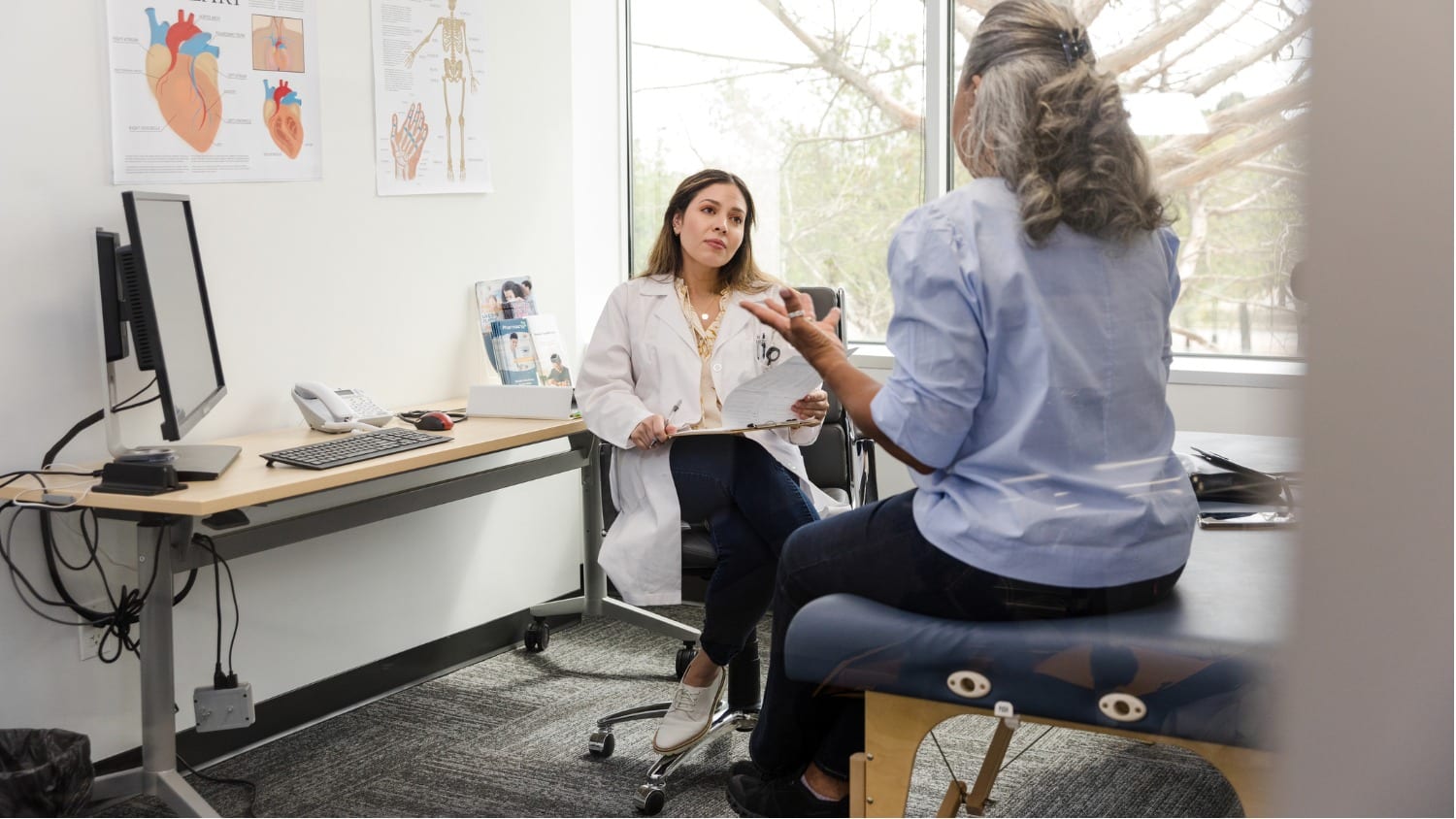
Being a Full Partner in Your Medical Decisions
I remember as a small child accompanying my mother to doctor’s appointments. Specifically, I remember sitting quietly listening and watching as the doctor lectured her about her weight, prescribing treatments, tests and regimens for her to follow.
What I Don’t Remember Is Her Saying Much
It was the 1960s, and she was expected to follow the doctor’s orders without as much as the opportunity to ask questions or request more information. She was instructed to take the pills, follow whatever advice was given and return in a prescribed time for a follow up.
Even as a little girl, I sensed the lack of consideration, compassion and understanding for the person inside that obese body with related health issues, and how being treated as though she should be ashamed made for a very quiet drive home. I knew she was struggling, and it was obvious the doctor wasn’t offering any support, just pills.
We Are Living in Different Times
Times have changed, there’s been a shift toward prevention, self-care and a broader variety of choices to improve one’s health, while still offering clinical treatment for those conditions that warrant them. Medications are now accompanied by detailed instructions, information about side effects, and contact information to get questions answered or to ask for assistance.
The Dynamics of an Office Visit Have Changed as Well
An interesting report featured in the National Library of Medicine cites the median length of a doctor’s visit as 15.7 minutes with the median talk time by patient at 5.3 minutes, and physician talk time at 5.2 minutes, clearly revealing patients are more actively involved and participating in the process.
This topic came to me as I prepared for an appointment with an endocrinologist. A routine scan of my thyroid a few weeks earlier revealed some new and suspicious looking nodules and a needle biopsy concurred there was a chance of malignancy that warranted further tests. I did what I always do, researched for more information and guidance for my next steps.
What I found was a website which piqued my interest, giving a name to what I wanted for myself.
The Agency for Healthcare Research and Quality, the lead federal government agency charged with improving the quality of healthcare for all Americans, developed a model for the process called Shared Decision Making. They introduced it as follows:
“Shared decision making occurs when a healthcare provider and a patient work together to make a healthcare decision that is best for the patient. The optimal decision takes into account evidence-based information about available options, the provider’s knowledge and experience, and the patient’s values and preferences.”
Further research revealed an article on the Journal of American Medicine Association (JAMA) network and several other major research and teaching hospitals across the country, all expounding the benefits of Shared Decision Making.
Making Use of Shared Decision Making
I was encouraged and eager to meet with my doctor and have the opportunity to engage with her in this new approach. I was not disappointed. We had a candid conversation before my next procedure, and I felt completely heard and understood, confident that we were striving for the same outcome.
I’m grateful for this innovative process and plan to continue to include it in all of my healthcare decisions. However, I also realize it comes with some significant responsibility and commitment on my part. To that end, I’ve compiled a list of the steps I will take to be fully involved.
I’m sharing this in hopes it might help others going through the same process of evaluating a condition and making choices about treatment.
I Will Be Clear About My Intention to Be Involved in the Decision-Making Process
I will ask for resources to get further information and promise to educate myself so I can make informed decisions with my healthcare provider’s support.
I’ll Be Brief and Come Prepared
I will arrive with a list of questions and let them know at the beginning of the appointment so they can leave time to answer them.
I Will Represent Myself Well
It’s important that the healthcare professional has a clear picture of who I am, my goals for aging, my level of dedication to my health and how I take care of myself.
I Will Thoroughly and Carefully Read the Material Provided to Me
My healthcare provider hosts an online patient portal that gives me access to all my test results and post appointment summaries. I appreciate knowing what is happening first hand as soon as the information is available, rather than having to wait until my next appointment. I will let my doctor know I have read this information so they know I am actively involved and well informed each step of the way.
I Will Ask for Clarification When I Don’t Understand
The medical industry has its own language, and the terminology can be intimidating. So I will speak up and ask to have things explained. I will inquire about the purpose of tests, what to expect and when I might get the results.
I Will Ask for a Second Opinion If Needed
Another specialist may see something different or offer another option, or they may concur and help me feel secure in my choice.
If I’m Not Comfortable with the Physician or Specialist I Am Referred to, I Will Find Another
I understand I am entering into an intimate partnership with this person, if I don’t feel confident in their abilities and comfortable with them, I will request a different referral.
I Will Educate Myself Between Appointments
I will research my condition through reputable resources. Most major hospitals, universities and research centers have well developed websites that offer patients guidance and information. I will take advantage of this wealth of information.
I Will Take My Time to Absorb Information and Get Comfortable with Any Diagnosis
I will ask for time if I feel the process is advancing too quickly.
This is my body, my life and my future. I want and need to be an active partner in how it plays out, and I fully believe taking these steps will afford me that choice.
As for my thyroid, further tests ruled out malignancy. I am grateful for these results and the care I received as I went through the evaluation. I am also grateful to have discovered and adopted this method of approaching my care and will continue to practice it in all my healthcare decisions, feeling empower and secure in my role.
Further read NOW MORE THAN EVER BECOMING YOUR OWN HEALTH ADVOCATE IS ESSENTIAL.
Let’s Have a Conversation:
When was the last time you went to see your healthcare provider? What was your experience like? Have you been encouraged to take active part in medical decision making?
Tags Healthy Aging







Timely, informative and a wake up call, if not already doing so. Thank you for authoring this article. Relieved your health scare has been eliminated. Wishing you continued good health, peace and joy in this holiday season.
Thank you for your kindness, Nancy. I’m so pleased you found the piece worthwhile. Wishing you the happiest of seasons.
I am my own best health care advocate and my doctor knows it.
We talk as friends and he is a great listener. He’s all I need. Went to 4 different cardiology doctors before finding the right one though!!
Great article! At my last visit with my PCP in September, he stated that “he was there to provide information, but it was my body and decisions about medical treatments were mine to make.” How far we have come since the 1960’s! The internet had a lot to do with the shift to mutual care practices.
I appreciate having test results available via an online portal. Any medical terminology that is over my head, I will google for the answers, and not just one site, but many to see which opinions agree. Everyone should take an active part in their health matters, because as the doc says, “it’s your body”.